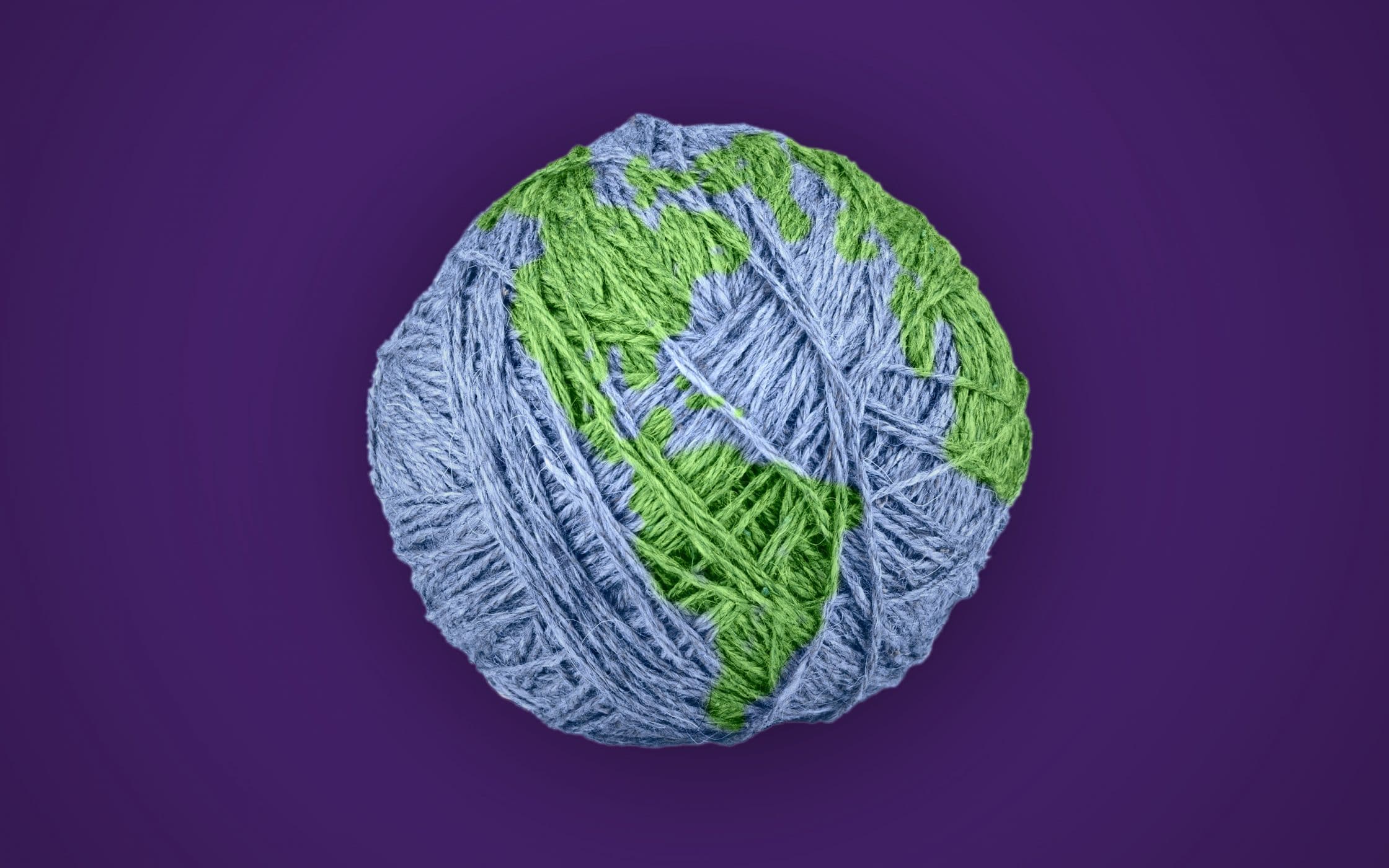Cape Town Sustainable Fashion: Environmentally Friendly Trends to Enjoy
Cape Town Sustainable Fashion: Environmentally Friendly Trends to Enjoy
Blog Article
Remain Ahead of the Curve by Checking Out Ingenious Fashion Patterns
In a market as dynamic as fashion, remaining in advance includes more than just following current trends-- it demands an expedition of technology. Smart fabrics, for example, are transforming garments into useful work of arts, while 3D printing is reinventing style processes with its customizable, waste-reducing capabilities. As sustainability becomes a keystone, technologies like environmentally friendly materials and circular fashion techniques are improving ecological obligation - Cape Town Sustainable Fashion. Additionally, the convergence of technology and style advertises a new era of consumer involvement. Just how, then, can these emerging trends redefine the future of fashion, and what effects do they hold for brands seeking to prosper in this developing landscape?

Welcoming Smart Textiles
Recently, the garment industry has actually observed a transformative change with the combination of smart fabrics, a cutting-edge advancement that blends technology with fabric. This advancement represents not only a combination of aesthetic appeals and functionality however also a significant jump towards sustainability and personalization in fashion. Smart textiles, additionally recognized as e-textiles, installed innovative electronic devices such as sensing units and conductive strings within the textile, making it possible for garments to engage with the user or the atmosphere.
These textiles are designed to monitor physical criteria, such as heart price or body temperature, offering real-time health analytics. Beyond wellness applications, clever fabrics are additionally being made use of for flexible garments, which can alter color or pattern in feedback to ecological stimuli, thus supplying a vibrant fashion experience.
Furthermore, the development of energy-harvesting fabrics that produce power from movement or sunshine is leading the way for self-dependent wearable innovation. This advancement is appealing to eco aware consumers and developers intending to reduce the eco-friendly impact of fashion. As study and advancement in this field breakthrough, wise textiles are anticipated to become increasingly widespread, reshaping the landscape of modern-day fashion with their multifunctional capacities.
The Increase of 3D Printing
Reinventing the manufacturing landscape, 3D printing has actually emerged as a game-changer in the apparel industry. This advanced modern technology has made it possible for designers to press the boundaries of imagination, producing complex and customized garments that were previously unimaginable. By leveraging digital layout and additive manufacturing, 3D printing promotes the creation of complicated geometries and patterns, permitting designers to explore new structures and frameworks.
A notable advantage of 3D printing in style is its ability to create on-demand, decreasing waste and reducing stock demands. This efficiency not only enhances manufacturing processes but additionally allows for fast prototyping, allowing designers to bring their visions to life in a shorter timeframe. Moreover, 3D printing sustains customization to a degree unrivaled by standard approaches, offering customized fits and special styles tailored to private customer choices.
The surge of 3D printing has actually also democratized style, making it obtainable to arising developers who can now produce high-grade pieces without substantial financial investment in conventional manufacturing framework. As technology continues to development, the apparel industry is poised to harness the complete possibility of 3D printing, discovering brand-new products and strategies that will certainly redefine exactly how fashion is conceived and created.
Sustainable Fashion Developments
As the apparel industry comes to grips with the pushing demand for environmental obligation, lasting fashion innovations have arised at the forefront of transformative modification. The growing understanding of environmental influence has actually sustained a shift towards more eco-conscious methods and products. Developers and brand names are now focusing on sustainability, incorporating techniques that minimize waste and decrease carbon impacts.
One substantial development is the increase of round fashion, which emphasizes recycling and upcycling to prolong the lifecycle of garments. This method not only minimizes waste but also urges customers to adopt a more conscious approach to apparel intake. Furthermore, making use of lasting materials, such as organic cotton, hemp, and recycled polyester, has acquired traction. These materials call for much less water and energy during manufacturing, significantly decreasing ecological impact.
Another development exists in the adoption of innovative dyeing strategies that utilize waterless processes or natural dyes, consequently lowering the vast quantities of Check This Out water and chemicals generally utilized in fabric dyeing. Moreover, developments in biotechnology have actually resulted in the next development of lab-grown natural leather and fabrics, providing eco friendly and cruelty-free choices to conventional products. Through these pioneering initiatives, the garment industry is making purposeful strides towards a more sustainable future.

Tech-Integrated Clothing
Tech-integrated clothing represents a groundbreaking fusion of fashion and technology, reshaping exactly how individuals interact with their clothes. This ingenious domain is noted by the incorporation of wise textiles and embedded digital parts, improving both capability and visual charm. From physical fitness trackers embedded in sportswear to heated jackets managed through smart device applications, tech-integrated clothing supplies consumers unprecedented convenience and versatility.
Introducing brands are driving this trend, concentrating on developing garments that react to environmental stimuli or user commands. As an example, some garments can alter shade or pattern in feedback to temperature level changes, while others integrate biometric sensors to monitor health metrics like heart rate or anxiety levels. The smooth combination of innovation into textiles likewise extends to ecological sustainability, with initiatives to develop self-cleaning textiles or garments that adapt to weather problems, hence lessening the demand for multiple layers.
Moreover, the advent of wearable technology is not simply restricted to clothing but includes devices like watches and eyeglasses, further expanding the range of tech-integrated fashion. As the sector remains to innovate, the possibility for customization and personalization in apparel grows, providing customers unique, tech-enhanced fashion experiences that satisfy their specific requirements and choices.
Future of Virtual Fashion
Over the last few years, the future of virtual fashion has become a transformative pressure within the market, leveraging developments in digital technology to redefine how style is developed, experienced, and consumed. By integrating augmented fact (AR), digital fact (VR), and 3D design tools, developers can now craft interactive and immersive experiences that go beyond traditional fashion boundaries. Virtual fashion enables the creation of garments that exist entirely in electronic atmospheres, supplying countless possibilities for technology without the constraints of browse around here physical manufacturing.
This digital shift not just provides opportunities for creative expression however additionally addresses sustainability problems intrinsic in conventional style methods. Cape Town Sustainable Fashion. By removing the demand for physical resources, virtual fashion lowers waste and lessens carbon footprints. Furthermore, the increase of online style aligns with the increasing consumer need for tailored and unique experiences, as virtual garments can be tailored and customized to individual preferences easily

Verdict
The fashion market's future lies in the integration of lasting practices and cutting-edge modern technologies. Online style is poised to redefine consumer communications.
In current years, the fashion industry has observed a transformative shift with the integration of wise textiles, a cutting-edge advancement that blends modern technology with fabric.As the fashion sector grapples with the pushing need for ecological duty, lasting style advancements have actually arised at the forefront of transformative modification.In recent years, the future of digital style has arised as a transformative pressure within the industry, leveraging improvements in digital innovation to redefine how style is created, experienced, and eaten. The rise of online style straightens with the enhancing consumer demand for one-of-a-kind and personalized experiences, as online garments can be tailored and customized to specific choices with ease.
The style market's future lies in the assimilation of innovative innovations and sustainable methods.
Report this page